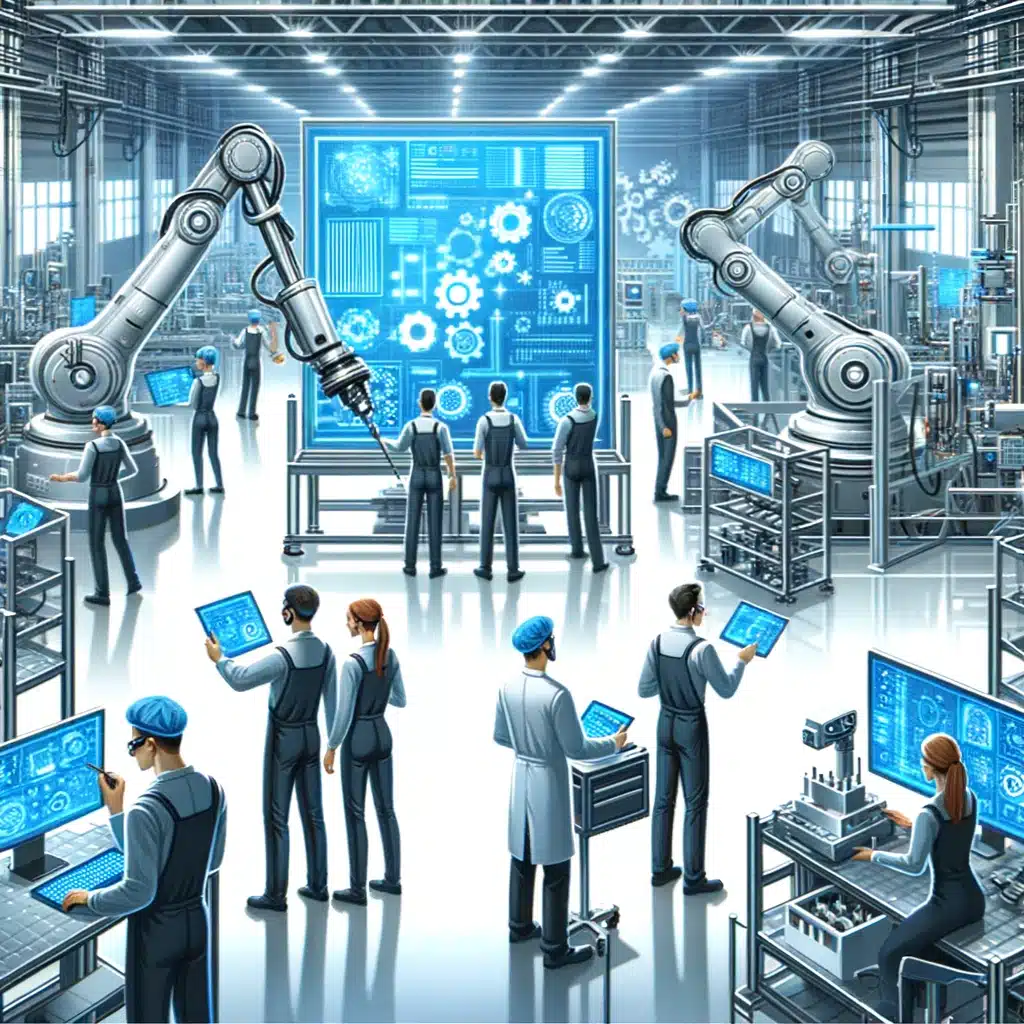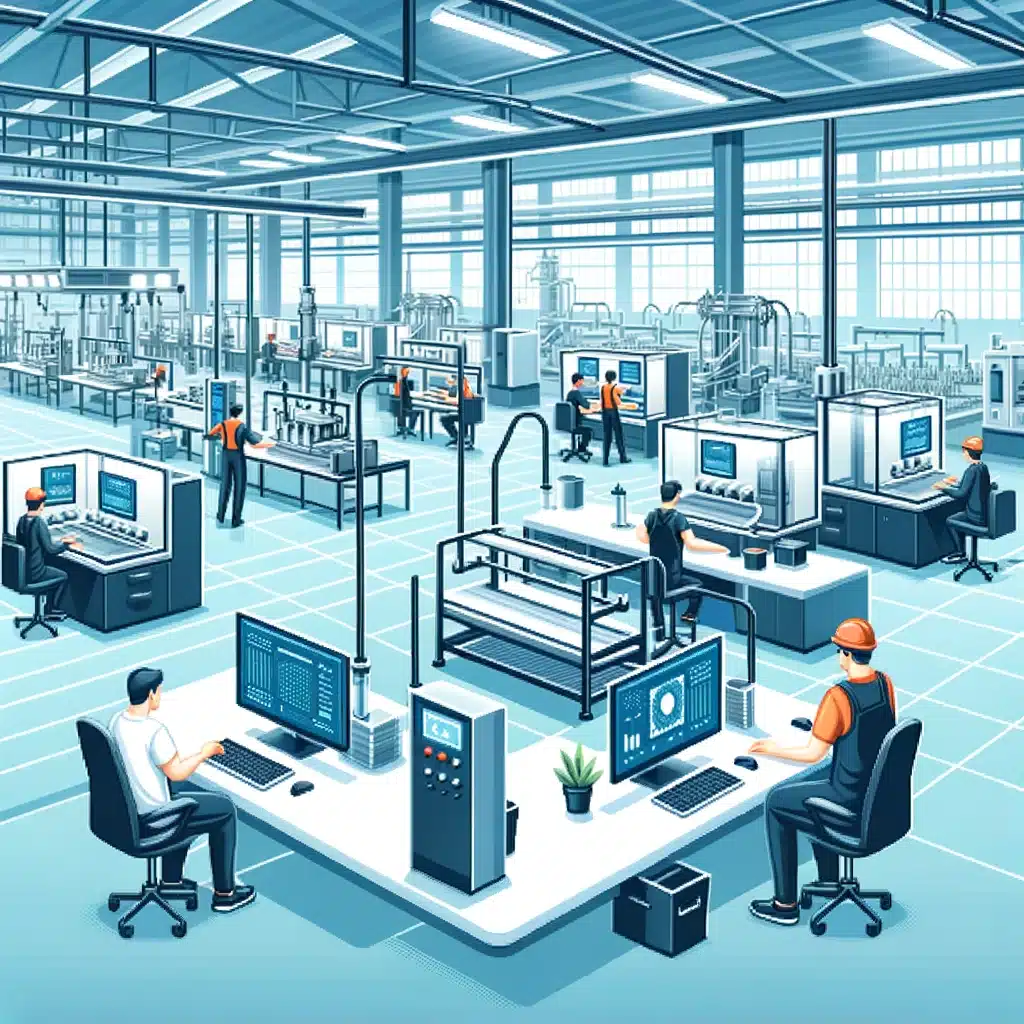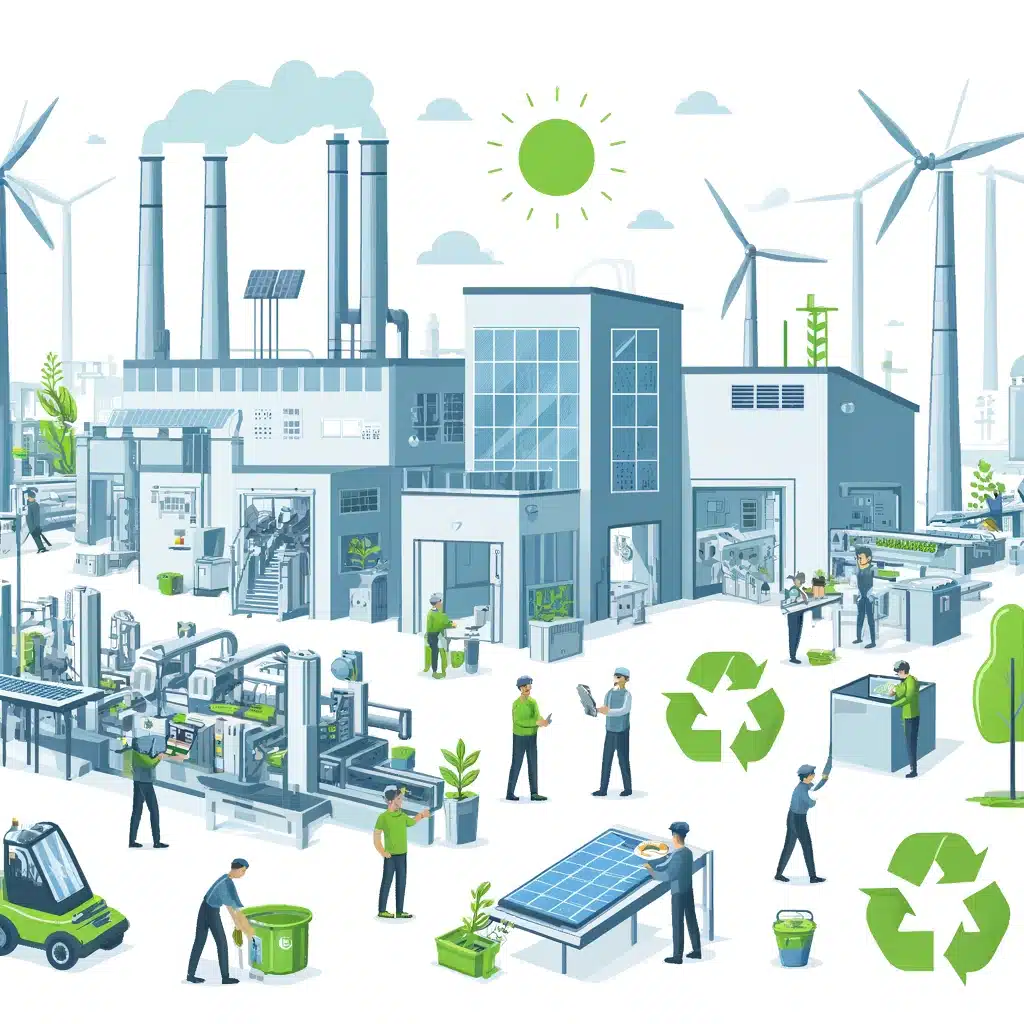Sustainability Practices in Factories
Discover the essential roles factory workers play in driving sustainability within the manufacturing sector, focusing on innovative practices that enhance eco-friendly production.
Description
Sustainability Practices in Factories: Empowering Factory Workers for Environmental Stewardship
In the contemporary industrial milieu, sustainability is not just a trend but a critical imperative across global manufacturing sectors. As the environmental impact of industrial activities garners increasing scrutiny, the shift towards sustainable manufacturing practices has become essential for companies aiming to reduce their ecological footprints while maintaining competitiveness. This in-depth exploration looks at the vital role of factory workers in deploying green manufacturing processes and highlights innovative practices that promote environmental sustainability.
The Paradigm Shift in Manufacturing
The journey towards sustainable manufacturing involves a fundamental rethink of production processes, resource utilization, and waste management. Driven by stricter environmental regulations, consumer demands for sustainable products, and a corporate commitment to social responsibility, companies are now prioritizing eco-friendly practices more than ever before.
Central Role of Factory Workers
Factory workers are at the heart of this transformative process. Their day-to-day operations and deep interaction with the production processes position them as critical players in the implementation of sustainable practices. Their roles encompass several key activities:
- Resource Management: Workers are tasked with optimizing the use of raw materials to ensure minimal waste. This involves precise measurement, careful handling, and efficient use of all inputs to ensure that production processes are as waste-free as possible.
- Energy Efficiency: Operating machinery in an energy-efficient manner is crucial. Workers are often responsible for setting up and managing machines to operate at optimal energy levels, including shutting down equipment when not in use and maintaining equipment for peak energy efficiency.
- Waste Reduction and Recycling: Workers are also on the front lines of waste management, segregating recyclable materials from waste, and ensuring that recyclable materials are properly processed. This not only reduces the environmental impact but also often cuts costs associated with waste disposal.
Enhanced Training and Skill Development
For factory workers to effectively contribute to sustainability goals, they must be equipped with the necessary skills and knowledge. Progressive companies are investing in comprehensive training programs that cover sustainable practices in depth. These programs might include:
- Environmental Education: Teaching workers about the impacts of pollution, waste, and inefficient resource use not only on the global environment but also on local communities and the company’s bottom line.
- Technical Training: Providing hands-on training in the latest eco-friendly technologies and processes, such as energy-efficient machinery or waste-reduction techniques.
- Best Practices for Sustainability: Training sessions on the best practices for environmental sustainability, including how to minimize the use of hazardous substances and optimize supply chain logistics to reduce carbon footprints.
Pioneering Sustainable Innovations
The drive for sustainability is also fostering innovation within manufacturing processes. Some of the leading-edge practices include:
- Renewable Energy Integration: More factories are integrating renewable energy sources like solar and wind into their operations. This transition not only helps reduce reliance on fossil fuels but also significantly lowers energy costs in the long term.
- Automation for Efficiency: Advanced automation and smart technologies are being used to optimize production lines for greater resource efficiency. These technologies also help in monitoring environmental conditions and managing energy use more effectively.
- Circular Manufacturing Models: Embracing circular economy principles, factories are turning waste materials back into production cycles, thereby reducing the need for new raw materials and minimizing waste.
Overcoming Challenges
Transitioning to sustainable manufacturing is not without challenges. Factory workers must adapt to changing job roles and learn to manage new technologies that are integral to green processes. There may be resistance due to fears of job displacement or the steep learning curve associated with new systems.
However, these challenges also present opportunities for career growth and skill development. Workers who master new technologies and processes can take on greater responsibilities, contributing to their personal growth and the overall success of their companies.
Conclusion
Factory workers are indispensable to the successful implementation of sustainable manufacturing practices. By empowering these workers with the right training, skills, and support, companies can effectively forge a path to reduced environmental impact. The commitment to sustainable practices ensures not only compliance with global standards but also positions these companies as leaders in the drive towards a more sustainable, responsible industrial future.
Additional information
| Publication |
|---|






